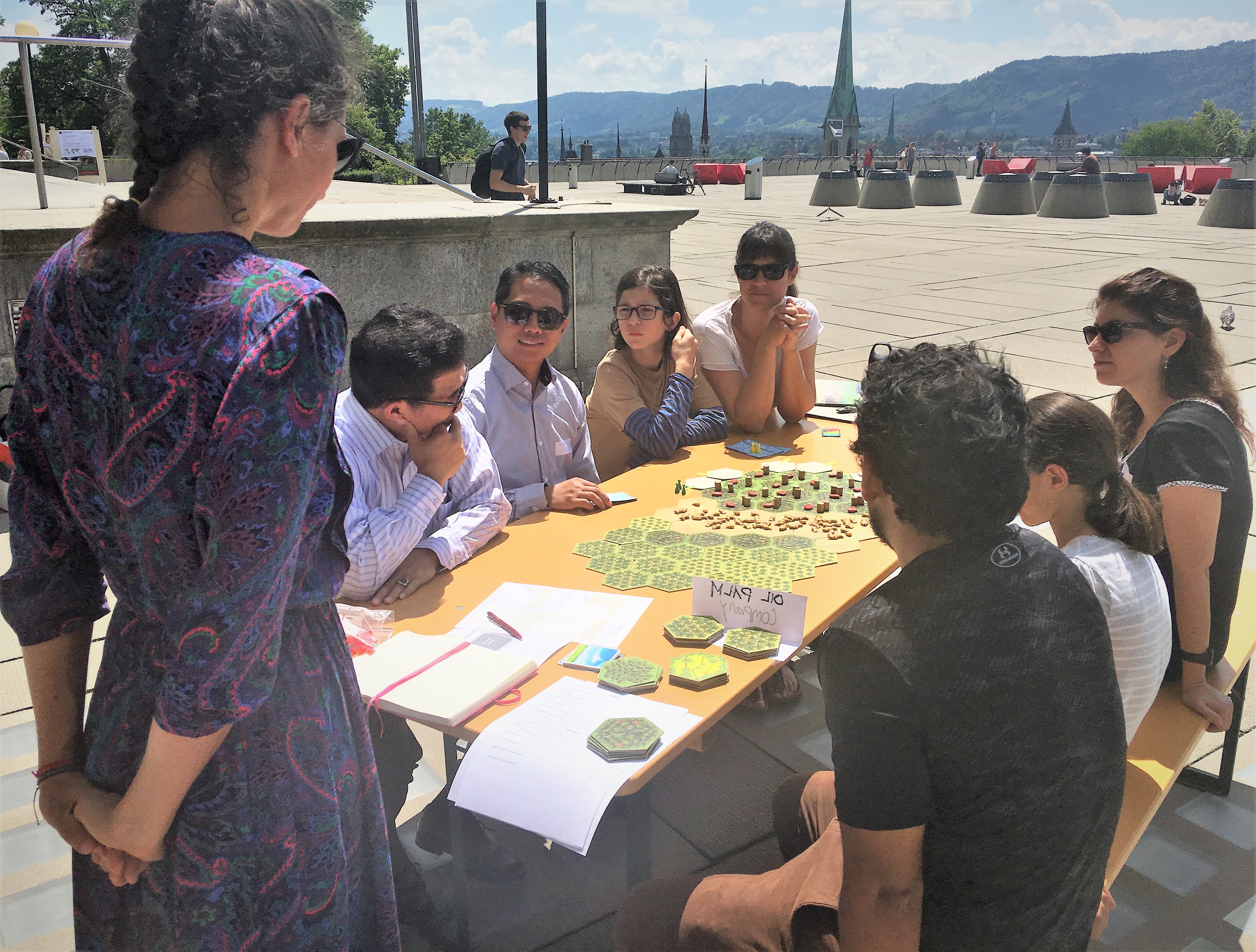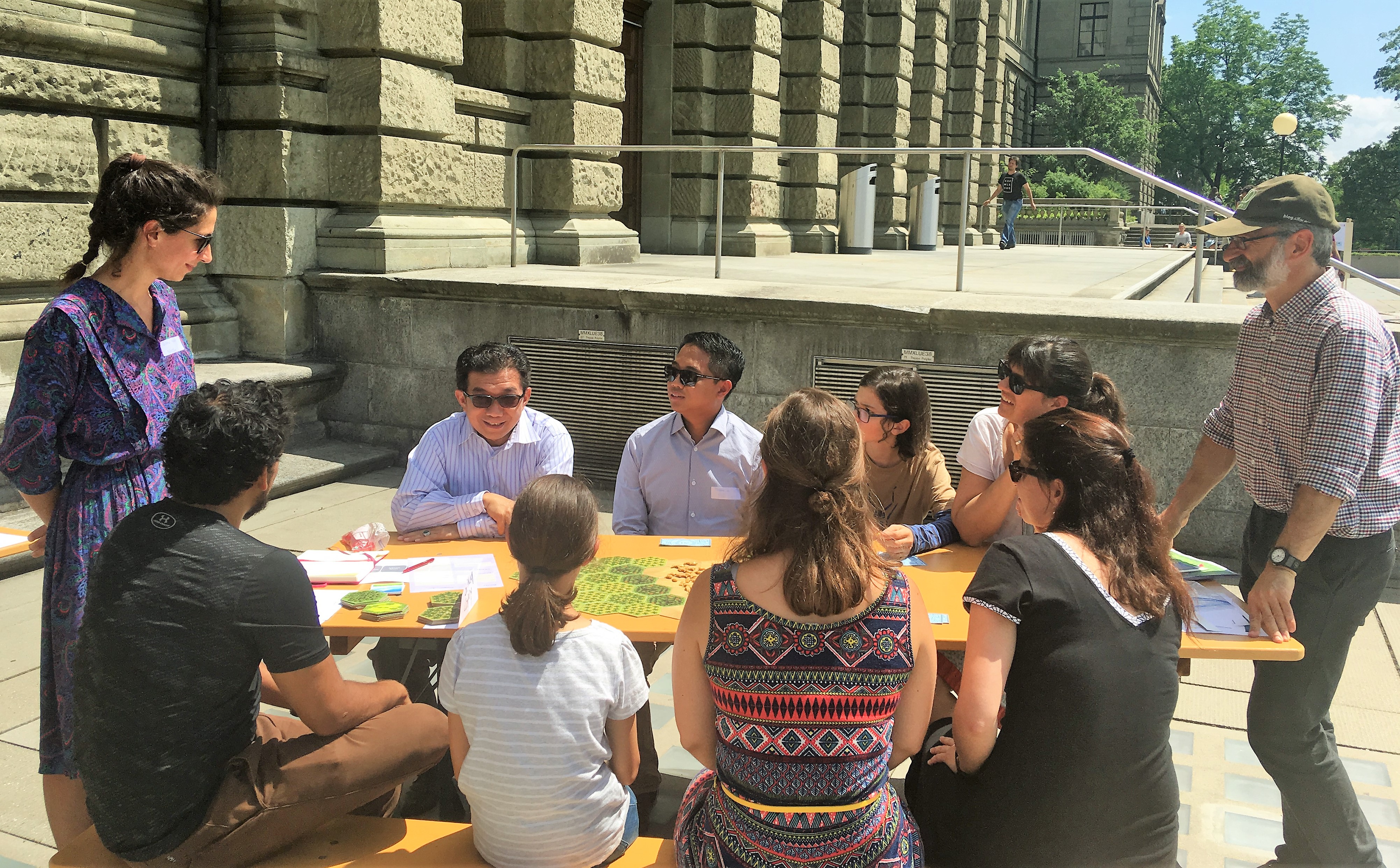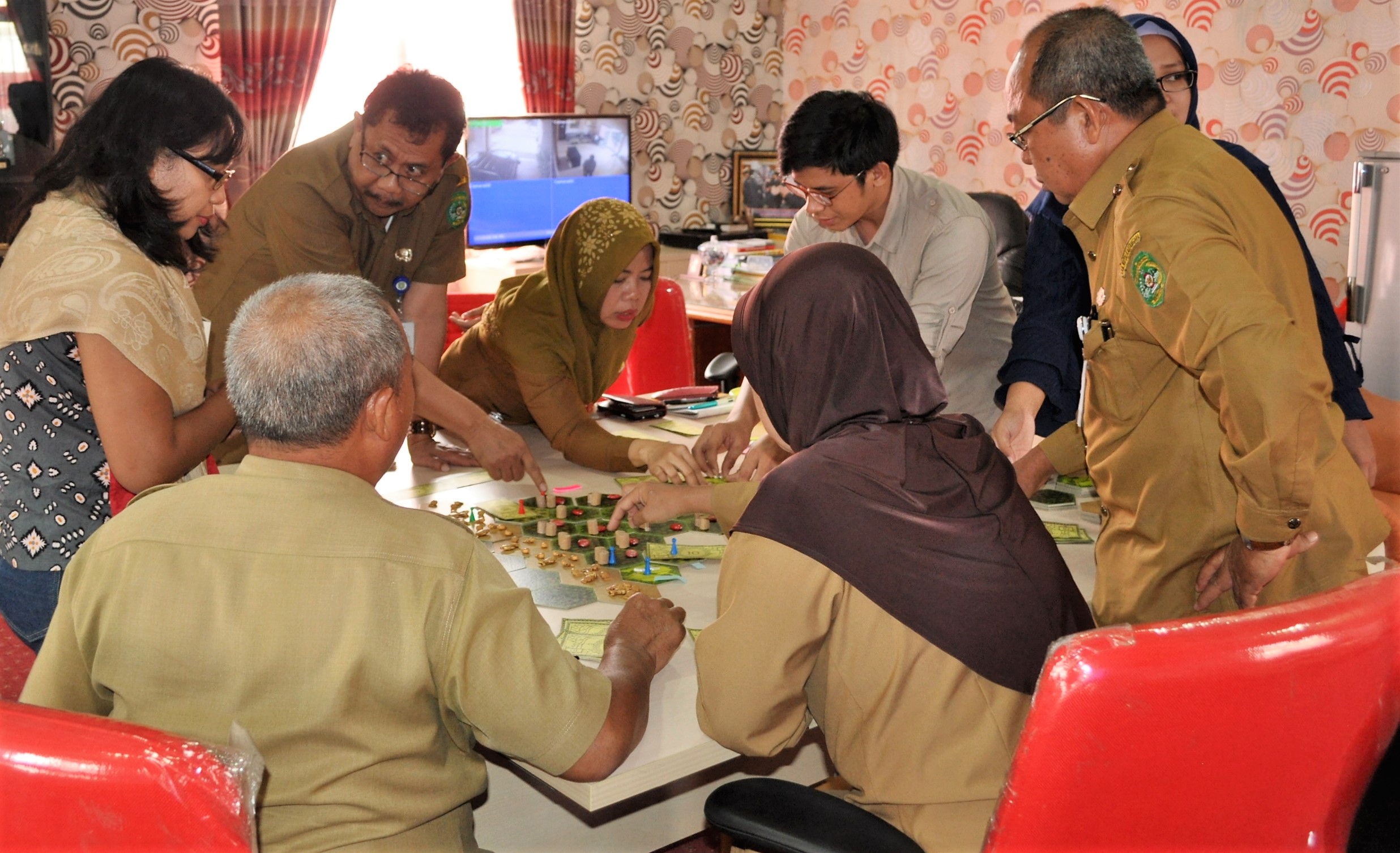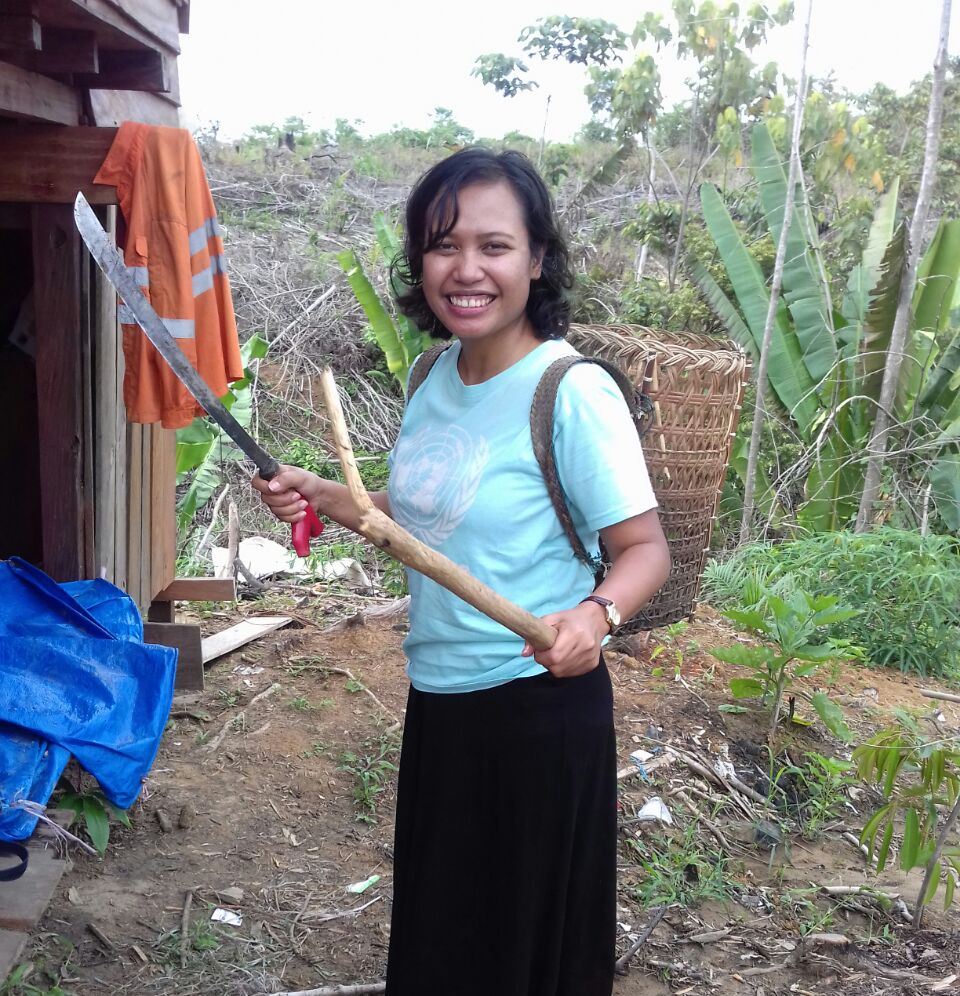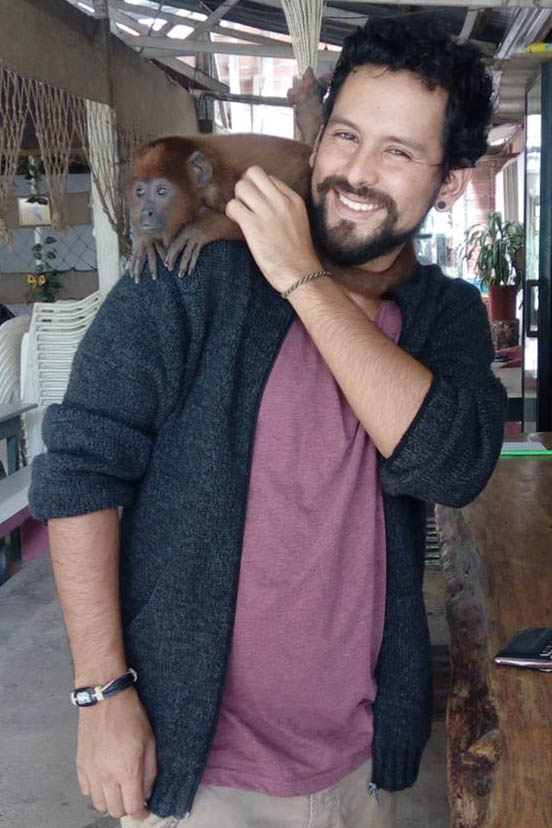Despite the merciless summer sun calling for swims in the river and walks in shady forests, eight people engaged in a lively discussion on ETH Zurich`s Polyterrasse with seemingly no end in sight. After nearly 3 hours, the discussion was still in full swing. “We are going to starve!” said one of the players and “The company just wants our land!” said another. Curious people stopped by and followed a few of the confusing minutes before they realized that what was happening was part of a role-play game. Participants were acting as smallholder farmers trying to make the best out of their land while negotiating contracts with the neighboring oil palm company that dominates the landscape - a board made of 22 tiles representing forests, plantations, and communities. At 5:30 p.m., the game master, doctoral student, Nicole Ponta, finally decided to close the action and start the debriefing.
“So, now you have experienced first-hand how the oil palm system works in Indonesia. We can stop the game and reflect upon what happened during the past few hours and why it happened,” she said to the players.


